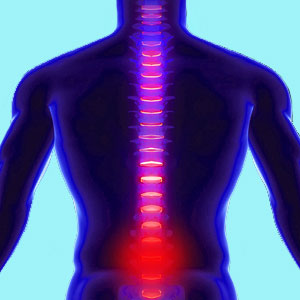
Lower back pain in the military is a major and sometimes career-threatening problem for many soldiers. Why are military personnel so prone to low back pain and what can be done to prevent them from being forced out of the service due to disability? These are crucial questions to consider for active duty troops, veterans and government agencies alike.
We have written much about back pain in veterans and military symptoms before. However, times have changed since the publication of our first essays on the topic over 15 years ago and we decide that now was a great time to revisit this vital topic to update our readers on the latest evidence that we have collected on this subject matter.
This treatise explores the incidence, causes and expressions of military service-related back pain in both active duty and retired troops. We will provide compelling evidence that soldiers remain as one of the highest risk groups for lumbar dorsalgia and may suffer the consequences of these syndromes for life.
Causes of Lower Back Pain in the Military
Soldiers live Spartan and difficult lives, featuring major strenuous exertions as normal parts of their daily routine. Soldiers often have to perform dangerous tasks that leave them exposed to lumbar injury and frequently deprive them of adequate health and wellness care. To add additional burden, soldiers are also faced with many situations that can create problematic psychoemotional issues in the subconscious mind. All of these factors are known contributors to a variety of lower back pain concerns:
Herniated discs and degenerative disc disease are commonly experienced by soldiers in the neck and lower back. Training and vocational activities certainly encourage the deterioration of the intervertebral structures in active duty troops.
Muscular lower back pain issues might be related to recurrent strain or scar tissue formation, especially when military personnel can not adequately recuperate after injury due to the requirements of active duty.
Combat training practice is sure to leave trauma to the spine, especially from repeated chokes, joint locks and falls suffered during takedowns in martial arts lessons.
While all of these structural factors are important to consider, they are not much different that those faced by many nonmilitary people who simply lead an active life of sports and strenuous recreation. However, a differentiating factor that is often overlooked in soldiers is the mindbody contributors to psychogenic lower back pain. In our extensive experience, we find that virtually all chronic pain conditions in soldiers that did not result from a massive life-changing injury are the direct cause or majority contribution of psychoemotional mechanisms, rather than anatomical pathology.
Armed Services Lower Back Pain
Recurrent or chronic lower back pain is disabling and will definitely impede a soldier’s ability to do their job. Even if they can “tough it out” and swallow the pain, their physical abilities will be diminished, threatening the safety and effectiveness of their comrades in arms. This is why so many lower back pain patients are discharged from active duty in the various branches of the armed forces.
Early discharge can have serious economic consequences for any soldier who relies on their career to provide for themselves and their family (all of them…). Furthermore, since lucrative post-duty contracts in private security and paramilitary contracting require a clean bill of health, a compromised former soldier might be greatly diminished in their earning power for the rest of their life unless they can receive training in a new and more “back pain friendly” profession.
When it comes to mindbody pain syndromes, soldiers were historically known to deny all association, since they viewed psychoemotional effects of trauma as signs of weakness. In our early years of patient advocacy more 2 decades ago, few soldiers would admit that mindbody pain was a viable explanation for their symptoms. However, since the popular support for PTSD and various mindbody conditions that are now considered to be almost universally suffered by military personnel, soldiers are now more readily accepting on this verdict and therefore responsive to knowledge therapy techniques.
Remember that soldiers are not only faced with hazardous conditions which challenge their bodies, they are also faced with many scenarios that challenge their ethics, morals and internal behavioral compasses. Add to this the extreme discipline and self-critical nature taught to them during training and you have the ideal recipe for severe, ongoing manifestations of psychogenic lower back pain.
Lower Back Pain in the Military Prognosis
There does not seem to be much hope for soldiers in the current environment in which they must serve. So many are deprived of adequate healthcare, not only from injury and exhaustion, but also preventative wellness care that can facilitate better health of body and mind. There is also little support for mindbody pain syndromes, which is terrible, since a bit of education can basically prevent these conditions from ever occurring if the governmental agencies that control the military branches would simply implement some simple practices. The lives, money and productivity that could be saved by such measures would be literally incalculable. However, as things stand, no military power has done anything about addressing the risks of mindbody pain before it occurs, although many are addressing existing cases through psychological interventions.
The military in many countries is now faced with huge ongoing expenses incurred from the care of veterans who have been wounded physically and psychologically. PTSD alone is costing the armed forces billions of dollars in the United States and is a growing problem that will only worsen in the future.
We at The Cure Back Pain Network are simply happy that more soldiers than ever before are coming around to understand and accept the role that the mind plays in the escalation, perpetuation and even creation of lower back pain, as well as all manner of chronic pain issues. Even when a structural causation does exist and demonstrates pathological tendencies, the influence of the mind will always provide some overlay that can tip the scales of suffering past the breaking point. To reverse this process, we highly recommend investigating the proven techniques of knowledge therapy to break the symptomatic imperative where it resides: In the mind.
Lower Back Pain > Low Back Pain > Lower Back Pain in the Military





